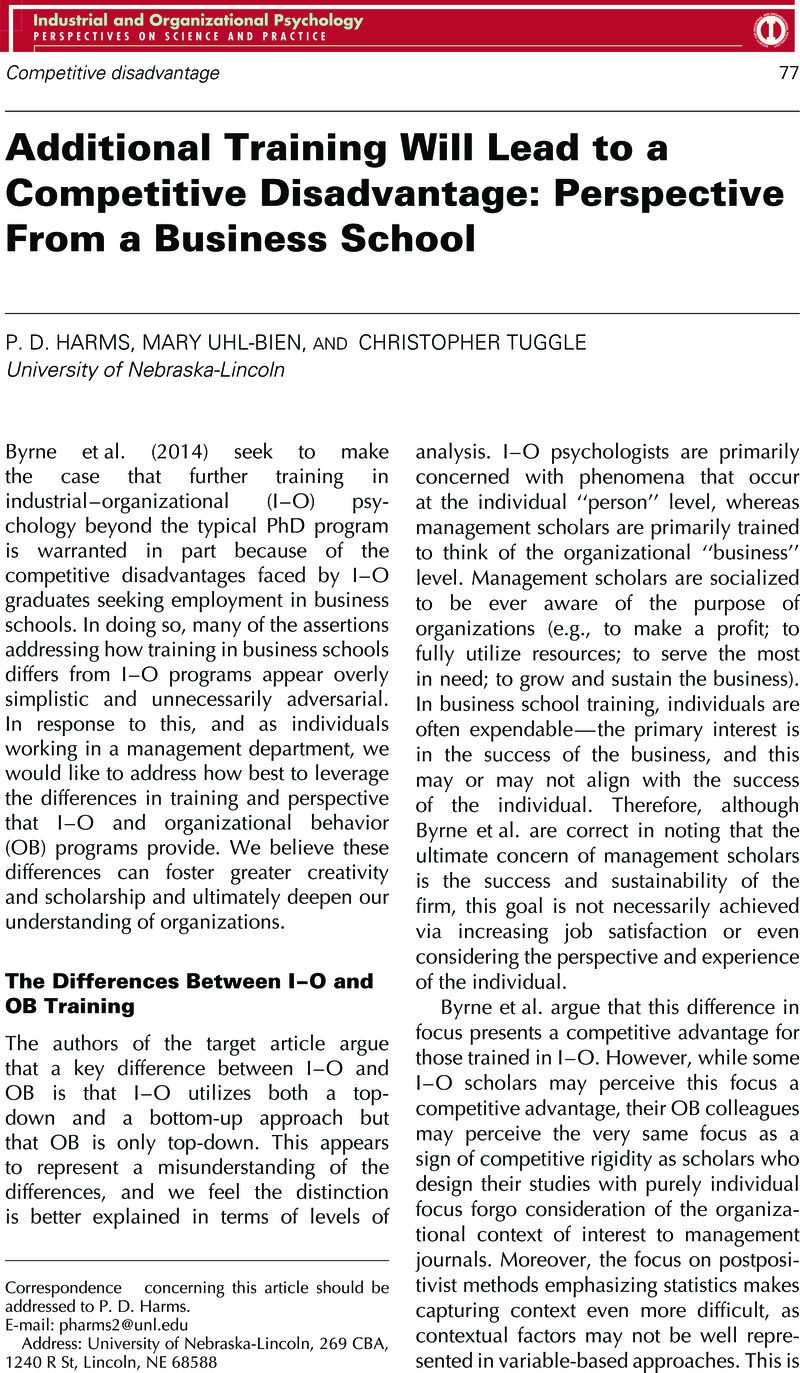No CrossRef data available.
Article contents
Additional Training Will Lead to a Competitive Disadvantage: Perspective From a Business School
Published online by Cambridge University Press: 07 January 2015
Abstract
An abstract is not available for this content so a preview has been provided. Please use the Get access link above for information on how to access this content.

- Type
- Commentaries
- Information
- Copyright
- Copyright © Society for Industrial and Organizational Psychology 2014
References
Byrne, Z. S., Hayes, T. L., McPhail, S. M., Hakel, M. D., Cortina, J. M., & McHenry, J. J. (2014). Educating industrial–organizational psychologists for science and practice: Where do we go from here? Industrial and Organizational Psychology: Perspectives on Science and Practice, 7(1), 2–14.CrossRefGoogle Scholar
Kozlowski, S. (2009). Editorial. Journal of Applied Psychology, 94, 1–4.CrossRefGoogle ScholarPubMed
SIOP. (1999). Guidelines for education and training at the doctoral level in industrial-organizational psychology. Retrieved from http://www.siop.org/PhDGuidelines98.aspxGoogle Scholar




